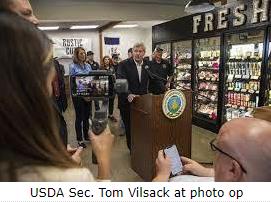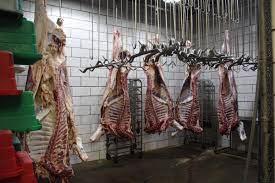Legislators representing both parties in the House and Senate are supporting the Strengthening Local Processing Act. This will allow small-scale local livestock and poultry producers to process livestock that at present is restricted to large plants under USDA inspection. Representative Chellie Pingree (D-ME) stated, “The Strengthening Local Processing Act will increase processing, enhance opportunities for local producers and help small slaughterhouses and butchers grow their businesses, delivering the quality, locally-raised meat and poultry consumers expect at the store.”

Senator Sherod Brown (D-OH), frequently opposed to intensive production stated, “If we are serious about fighting consolidation in the livestock sector, we need to invest in Ohio’s small processors that will help create jobs in their community making our supply chain more resilient and bring down prices.”
The Strengthening Local Processing Act will increase the federal cost share for state facility inspections to 65 percent, encouraging states to implement inspection programs and to participate in the Cooperative Interstate Shipment Program that currently includes eight states.

Activists legislators opposed to intensive livestock production fail to recognize that the current system involving concentration has developed on the basis on efficiencies of scale requiring capital-intensive plants, supply chains and logistics, processing efficiency, marketing and distribution. Size allows packers to acquire fixed and working capital, logistic capability and coordination of supply chains to continue serving markets at prices beneficial to consumers.
Evaluation of the cost structure of small-scale producers especially in the absence of integration demonstrates the differential in cost of production that must be passed on to consumers. There is considerable evidence from USDA-FSIS citations that standards of welfare are far lower with small processing establishments due to deficiencies in equipment and training of personnel.
It is strikingly evident that the disruptions associated with the emergence of COVID during the first half of 2020 are now being used as a justification to attempt to dismantle red meat and poultry production without opponents advancing a viable alternative. If enterprises cannot survive without government financial support and mandates they will be de facto nonviable.